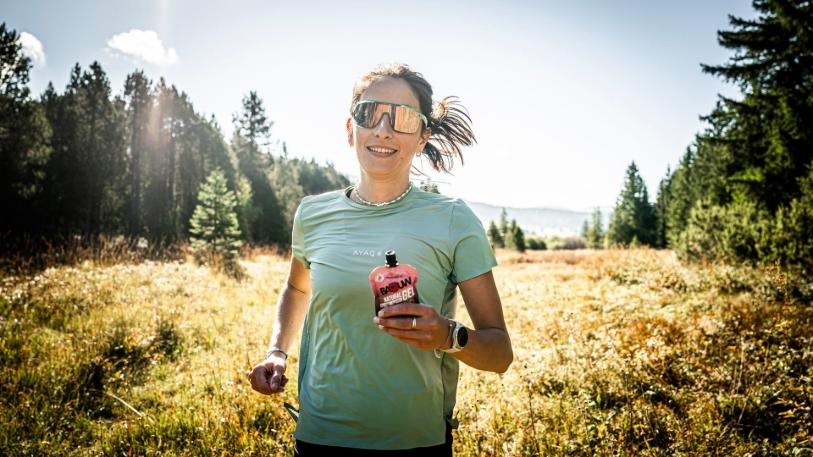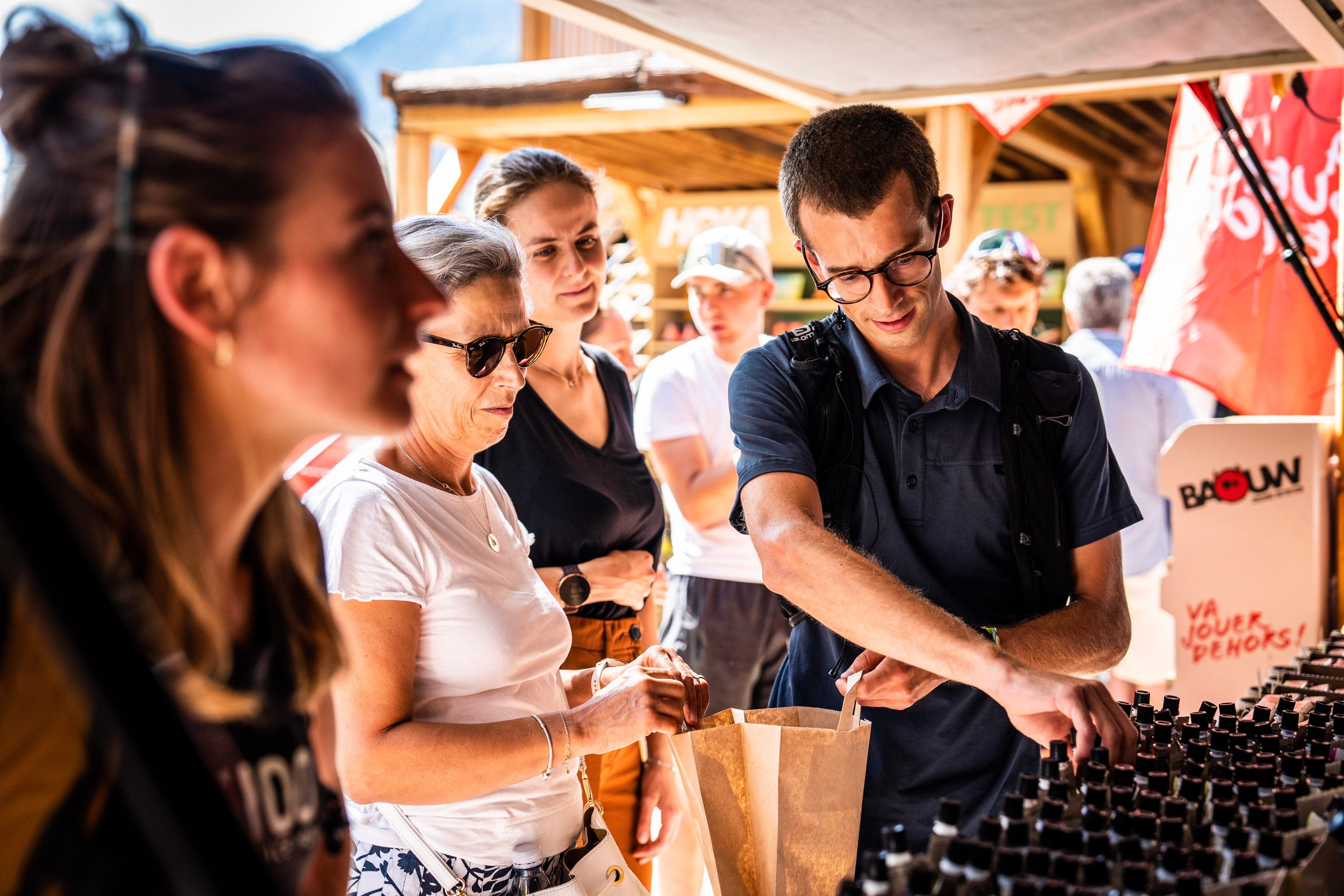Vitamins for athletes: everything you need to know about the superheroes of your performance
Vitamins: a sportsman's best friend! But how do they work? Here's a little teaser: if you want to give your best on the pitch, on the track or in the gym, it's time to shed some light on vitamins, your powerful allies for boosting your energy, optimising your recovery and keeping you in peak condition whatever the season.
In this 100% Baouwarticle, we explain everything: which vitamins will help you reach the next level, how they work behind the scenes to support your body, and how to easily incorporate them into your diet. Let's get started!
Focus on vitamins themselves: why are they referred to as ‘essential substances’?
Vitamins are organic substances that your body simply cannot do without. Unlike macronutrients (such as proteins, carbohydrates and lipids), which provide you with energy, vitamins do not directly produce energy.
Mais alors, c’est quoi leur job ? Tout simplement permettre à une multitude de processus biologiques de bien fonctionner, qu’il s’agisse de la production d’enzymes, la croissance cellulaire, la défense antioxydante…
The different roles of vitamins for the body and athletic performance
Due to their role, certain vitamins are particularly important for athletes:
- Energy conversion: it is mainly B vitamins, vitamins B1, B2, B3, B5, B6 and B8, that convert your carbohydrates into fuel for your muscles. And to perform well, there's no mystery about it, you need a continuous supply of energy.
- Contribue à la formation normale des globules rouges : toujours dans le groupe des vitamines B, la B9 et la B12 participent, de leur côté à la synthèse des globules rouges et des protéines. Et qui dit globules rouges au top dit meilleure oxygénation du sang… et session de sport plus efficace !
- Immune protection: they strengthen your defences and help protect you on a daily basis from minor health issues that can interfere with your training sessions.
- Antioxidant function: this time, vitamins A, C and E come to your rescue by neutralising the free radicals generated by intense exercise. And you know that at Baouw, we firmly believe in the combination of "antioxidants and sport".
These essential micronutrients are therefore valuable allies if you are seeking to make progress while maintaining your health.
The specific vitamin requirements of athletes
Given the many benefits of vitamins, you may think that everyone, without exception, needs them. That's true, but it's worth noting that vitamin supplements are particularly recommended for people who engage in intense physical activity, as these micronutrients optimise your energy reserve. At the same time, exercise increases energy expenditure, increases oxidative stress and puts a strain on your muscular system. If you let your reserves dwindle, you risk chronic fatigue, repeated injuries... and a drop in performance.

Focus on the vitamins essential for your sporting activities
Vitamin A
Ses actions sur ta santé, en tant que sportif, sont variées puisqu'elle contribue au maintien d'une peau normale et au fonctionnement normal du système immunitaire.
The main sources of vitamin A are as follows:
- cod liver,
- herring
- egg yolk,
- offal
- dairy products,
- carrots
B vitamins
La vitamine B2 (riboflavine) t’aide à assimiler de l’énergie. Elle montre aussi toute son efficacité dans un contexte post-séance de sport, puisqu’elle contribue à réduire la fatigue. Et en bonus, sache que la santé de ta peau passe aussi par elle !
Among the foods richest in riboflavin are oilseeds, green vegetables, eggs and soft cheeses...
Au tour de la B3, ou niacine, d’être mise à l’honneur ! Au programme : contribue au fonctionnement normal du système nerveux et à réduire la fatigue. Tout ce qu’on demande en tant que passionné d’activité physique !
Its main sources? White and red meat, but also fish, pulses and dark chocolate.
To ensure you get enough vitamins, you will need to include meat, fish, eggs and dairy products in your diet... Always good quality, of course!
Par ailleurs, la vitamine B6 (pyridoxine) se place elle aussi comme une alliée des sportifs grâce à sa contribution active à réguler l'activité hormonale et la récupération musculaire. En gros, pour un esprit sain dans un corps sain, tu peux y aller sur le sport ET la B6 !
To do this, prepare meals based on oily fish, offal, broccoli and pulses... Do you also think there's a lack of fruit? Don't worry, bananas will be your best friend for ensuring your vitamin B6 intake.
Last but not least, vitamin B12, which you probably know about if you're interested in vegan nutrition! Its functions include transporting oxygen to the muscles, synthesising DNA, and actively contributing to healthy nerves and bones. However, we must draw your attention to the fact that if your diet excludes all animal sources, you need to be careful. Meat, oily fish, seafood and dairy products are the only sources of B12. In other words, as a vegan AND a keen sports enthusiast, you have no choice: you must take dietary supplements, otherwise you will quickly suffer from a harmful deficiency.
Vitamin C (or the orange myth!)
La vitamine C contribue à maintenir le fonctionnement normal du système immunitaire pendant et après un exercice physique intense et à la formation normale du collagène ! En revanche, profitons de cet article pour tordre le cou à une idée reçue fermement ancrée dans les esprits : non, l’orange n’est pas la source alimentaire naturelle la plus riche de notre fameux micronutriment. Certes, elle en contient, à l’image du citron, des fruits rouges, du poivron, du brocoli et de la fraise. Mais si tu veux vraiment faire le plein, prépare-toi un bon plat à base de chou kale sublimé par du persil fraîchement émincé ! Ce légume feuillu et cette herbe aromatique se cultivent très bien en France, tu peux donc manger local ET sportif-friendly !
Vitamin D
Elle a entre autres pour fonction d’optimiser l'absorption et l'utilisation du calcium sur tes os. Bien qu’elle soit souvent associée à l’huile de foie de morue, rassure-toi, tu peux en trouver dans les poissons gras, en particulier le saumon et la sardine, ainsi que dans les œufs. En revanche, l’organisme n’étant pas en mesure de synthétiser lui-même la vitamine D, tu peux lui donner un coup de pouce non négligeable en t’exposant au soleil 15 minutes par jour minimum. En saison hivernale, où la lumière naturelle manque cruellement dans certaines régions de France, n’hésite pas à profiter du moindre rayon en présentant au soleil ton visage, ta nuque et tes avant-bras !
Vitamin E
Elle contribue à protéger les cellules contre le stress oxydatif ! Tu pourras trouver de la vitamine E en quantité intéressante dans certaines huiles végétales : germe de blé, noisette et avocat en tête. Autrement, n’hésite pas à miser sur les oléagineux, le beurre et les abricots pour augmenter tes apports.
vitamin K
La vitamine K impacte directement la coagulation sanguine. Les choux verts et kale, le brocoli, les légumes à feuilles ou encore le kiwi en regorgent.
How to meet your vitamin needs as an athlete
Natural nutrition: the priority for avoiding deficiencies
At Baouw, we firmly believe in the virtues of healthy eating, chrononutrition and natural nutrition. So here are a few tips to help you get the most out of the powerful combination of exercise and vitamins.
Our top tip is to eat a varied diet. By varying the foods you eat, i.e. alternating between fruit, vegetables, whole grains, pulses, meat, dairy products and oilseeds, you can cleverly mix nutrients without even realising it! In concrete terms, we can illustrate our point with the example of iron, which is better absorbed by the body when combined with vitamin C. You therefore benefit from the matrix effect des aliments en diversifiant la composition de tes menus ! Bien sûr, évite au maximum les produits ultra-transformés, pauvres en vitamines et riches en additifs.
When and why should you consider taking vitamin supplements?
Yes, a deficiency is scary! But we want to emphasise this point: not everyone needs vitamin supplements. Elite athletes may use them to prevent vitamin B and vitamin C deficiencies during intensive training.
In addition, you will also benefit from taking supplements if you have any proven deficiencies: a blood test doesn't lie! If your levels are too low, it's best to take action. Finally, during competition periods, your energy expenditure and oxidative stress skyrocket, so your body may need some support!
Mistakes to avoid: no vitamin missteps for athletes!
L’erreur la plus classique, notamment lorsque l’on commence à s’intéresser à la nutrition, c’est la surconsommation : les mégadoses, c’est contre-productif, voire dangereux. De même, si tu te tournes de manière ponctuelle vers des compléments alimentaires, ne fais pas l’impasse sur la qualité, sous peine que ton organisme ne les assimile pas convenablement. Enfin, pas d’auto-diagnostic ! En cas de doute, file voir un médecin ou un nutritionniste.
The Baouw FAQ: your questions about vitamins and sport
Can all our needs be covered by food alone?
In theory, yes, if you eat a varied and balanced diet. In practice, it depends on your training schedule, your food choices, your budget and any food intolerances you may have. That's why it's so important for athletes to get personalised nutritional advice from a professional!
Is it difficult being vegetarian or vegan?
Vitamin B12 can quickly become deficient in a vegan diet, as it is mainly found in animal products. In this case, consider getting regular check-ups and monitoring your vitamin levels.
Should you adjust your vitamin intake during competition season?
Absolutely. Your body is under a lot of stress, so it needs an extra dose of antioxidants (red fruits, leafy vegetables, citrus fruits, etc.) and sometimes targeted supplementation. A nutrition professional will help you see things more clearly.
Our table dedicated to athletes seeking vitamins!
Vitamin | Main sources |
Vitamin A | Cod liver, herring, egg yolk, offal, dairy products, carrots |
Vitamin B1 (thiamine) | Whole grains, legumes, pork, offal |
Vitamin B2 (riboflavin) | Oilseeds, whole grains, green vegetables (spinach, cucumber, lettuce, etc.), eggs, soft cheeses, avocado |
Vitamin B3 (niacin) | Meat, fish, pulses, whole grains, almonds, cashews, chocolate |
Vitamin B5 (pantothenic acid) | Meat, fish, eggs, dairy products |
Vitamin B6 (pyridoxine) | Oily fish, offal, pulses, bananas, broccoli, leeks, spinach, potatoes, carrots, sesame/sunflower seeds and oils |
Vitamin B8 (biotin) | Offal, eggs, mushrooms, beans (all varieties) |
Vitamin B9 (folic acid) | Liver, fermented cheeses, egg yolk, legumes, berries |
Vitamin B12 | Offal, meat, oysters, mussels, lobster, dairy products, oily fish |
Vitamin C (ascorbic acid) | Citrus fruits (orange, lemon), strawberry, lychee, mango, redcurrant, pepper, cabbage, broccoli, watercress, chives |
Vitamin D | Oily fish (salmon, sardines, herring, etc.), cow's milk, beef liver, cod liver, cheese, eggs, sun exposure |
Vitamin E | Oils (wheat germ, avocado, hazelnut, sunflower, walnut), oilseeds, eggs, butter, apricots |
Vitamin K1 | Cabbage family (green cabbage, curly kale, kale, etc.), broccoli, leafy vegetables (lettuce, spinach, endives), green beans, kiwi fruit |
Vitamin K2 | Dairy products, cod liver and poultry liver |
Now you know everything there is to know about vitamins and their role in your quest for athletic performance. Don't forget to focus on a rich and varied diet: a well-nourished body is a body that can push its limits without (too much) suffering!
At Baouw, we believe that nutrition is the key to feeling good about yourself, which is why we take such care in developing our recipes, from our energy gels to our super spreads. Don't hesitate to add colour to your plate, monitor your intake and, if necessary, supplement it wisely.
Want to know more? Take a look at our other articles on sports nutrition, healthy recipes and tips for staying in top shape all year round. After all, at Baouw, we love to see athletes reach their full potential... and have fun playing outdoors!







